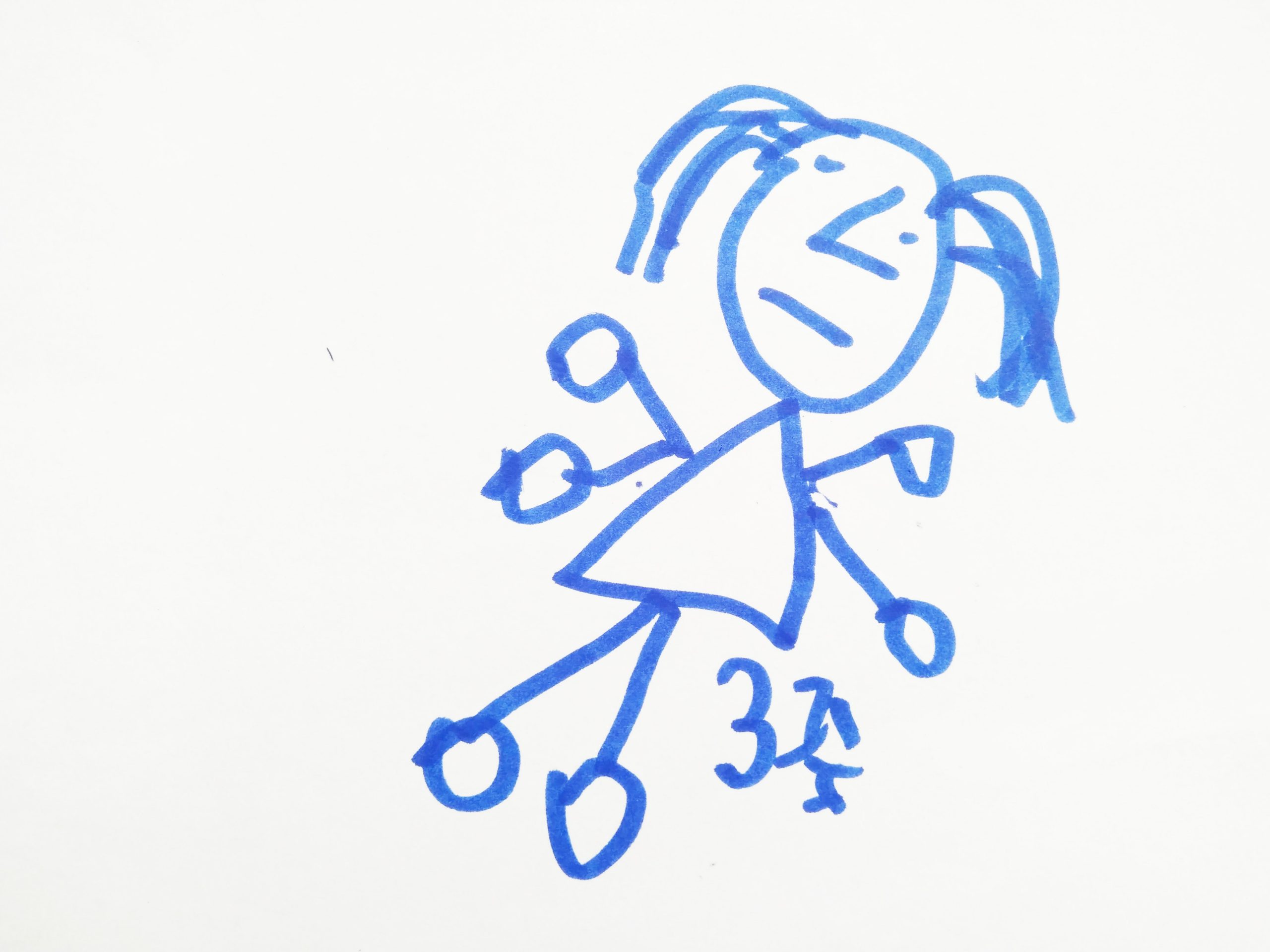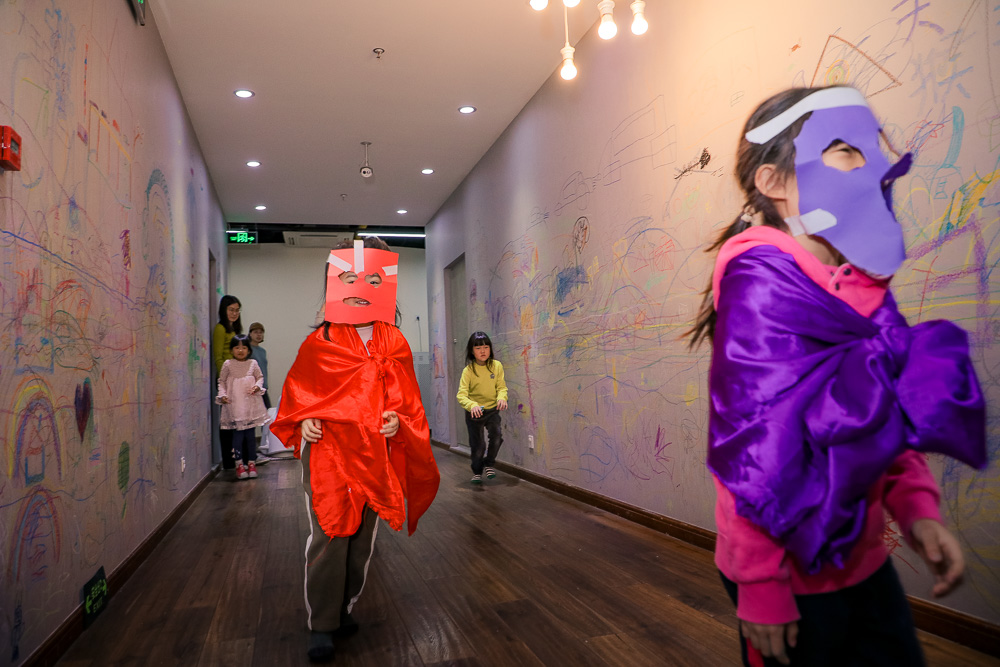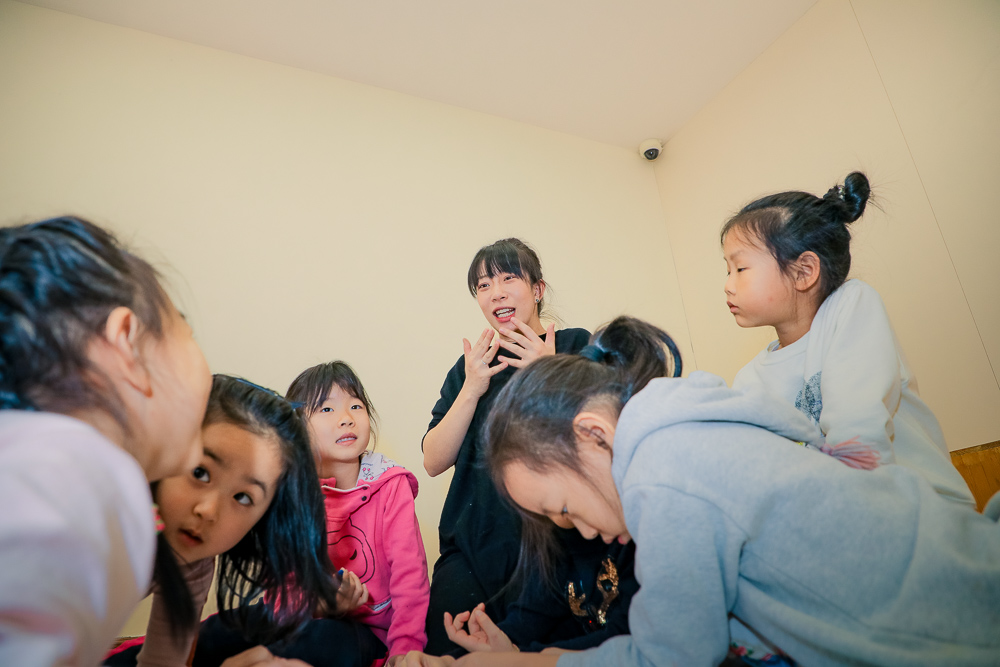What do People Say about DRE?
Having the chance to come to Drama Rainbow, through the door to see a different sky, with space to move, that’s comfortable, gives my Son a sense of being at home. My Son likes it here: Experiencing the story, feeling for himself in the story, he can enjoy using imagination, to think about problems, solve problems. The key is for children to try to solve problems in their own way, its not about ‘right’ or ‘wrong’, but letting the child feel it.

—— Flying lqi
Online identity in Public Commentaries social media
[DRE] can grasp the attention of a 7 year old immediately, and do so persistently for such a long time. One of the reasons is, that Drama Rainbow really finds a way into the child's heart. Going to Drama Rainbow gradually becomes a favourite thing, rain or shine, that they don’t want to end. The kind of environment created by Drama Rainbow is almost non-existent in public schools and other extracurricular classes.

—— Every Time is like the First Time
Online identity in Public Commentaries social media
It's not about teaching children skills, or teaching parents small tricks to suppress their child's nature. Instead, work with children in a storytelling way, where children can discuss a topic of interest with their peers from many angles in drama, and develop their abilities in many different ways.

——New Year’s Day Mum
Online identity in Public Commentaries social media
An open and warm environment, kind teachers, rich activities, all the children around me have fallen in love with it here. Drama Rainbow is not just a training Centre, it is more like a warm and loving community. My daughter and her friends said they will stay in Drama Rainbow till they are 99 years old.

——Purpleeye
Online identity in Public Commentaries social media
In all my children's extracurricular classes, the communication between the Drama Rainbow teacher-facilitators and children is the best. They are full of respect for children, learning with them.

——qinna844816
Online identity in WeChat social media
My child is slow to warm up, an introverted little girl. She has been in kindergarten for a year and doesn't say hello to the teacher, but she is particularly relaxed at Drama Rainbow, including when communicating with the teacher —— I can feel that Drama Rainbow is very helpful to children. Sometimes I joke with her, we have too many extracurricular classes, we should just choose one. She says ,"then I'll just go to Drama Rainbow." So I believe that the child herself knows what she needs, perhaps more clearly than we do.

—— Ginger
Online identity in WeChat social media




